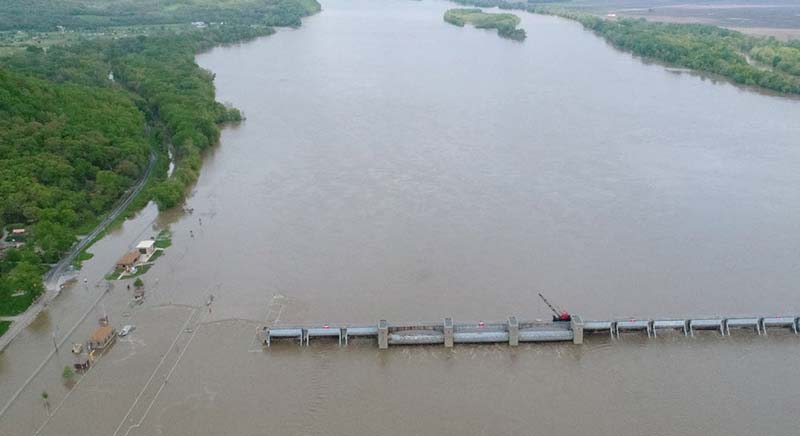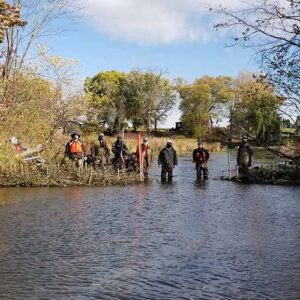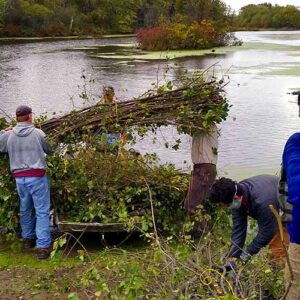From tourism to agriculture to biodiversity, the stretch of the Mississippi River that borders western Wisconsin is a critical resource — and one that is put at an increasing risk due to climate change. A focus on climate impacts from the Wisconsin Initiative on Climate Change Impacts (WICCI) shows the Mississippi River communities and habitats in Wisconsin are at risk due to the increasing variability in river flows caused by changes in precipitation, snow melt, storm intensity, and land use.
The last two decades have been the warmest on record in Wisconsin and the past decade has been the wettest. Extended high water and fall flooding have occurred on the Mississippi River in seven of the last 10 years.

The Mississippi River provides Wisconsin with an array of services and natural capital. The 33 historic river towns and villages along the Wisconsin Great River Road, 250 miles along the Mississippi River, is a major tourism attraction. The agriculture sector relies on the river for deliveries of agricultural chemicals and shipments of commodities. The excessive volume of water impacts tourism, causes damage to transportation infrastructure, and delays deliveries of agricultural chemicals and shipments of commodities. High-water years also deliver sediment and nutrients that lead to harmful algal blooms and contribute to the expansion of the Gulf of Mexico hypoxic zone.
Hundreds of thousands of migrating waterfowl rely on the aquatic plant populations in the river as a critical food source. Waters in the river floodplain away from the main channel, known as backwater lakes, are central to the biological productivity and diversity in the system. They provide refuge from the high flows in the Mississippi, habitat for fish to spawn and overwinter, and essential habitat for water-fowl and other wildlife. High and variable flow conditions associated with climate change are causing significant damage to these and other Mississippi River habitats, such as floodplain forests.
The WICCI Mississippi River Group recommends actions to make the Mississippi River basin more climate resilient, including restoring natural areas, investing in flood risk reduction practices and pre-disaster mitigation programs, and developing a two-dimensional hydraulic model to help with Mississippi River habitat projects, community flood risk evaluation, and management. There is hope for the future — but it’s up to us.
This article is part of a series highlighting the contribution from each WICCI Working Group for the 2021 WICCI Assessment Report.
Support WICCI
Gifts to the Wisconsin Initiative on Climate Change Impacts (WICCI) Program Fund provide general, discretionary program support and are used to enhance and expand WICCI’s teaching, research, and public service roles. Gifts are also used to support partnership-building activities, include faculty, staff, and student recruitment, retention, and morale.
The Wisconsin Initiative on Climate Change Impacts (WICCI) is a statewide collaboration of scientists and stakeholders formed as a partnership between UW–Madison’s Nelson Institute for Environmental Studies and the Wisconsin Department of Natural Resources. WICCI’s goals are to evaluate climate change impacts on Wisconsin and foster solutions.


